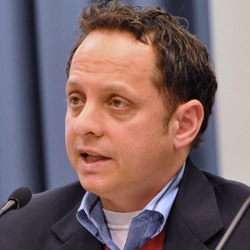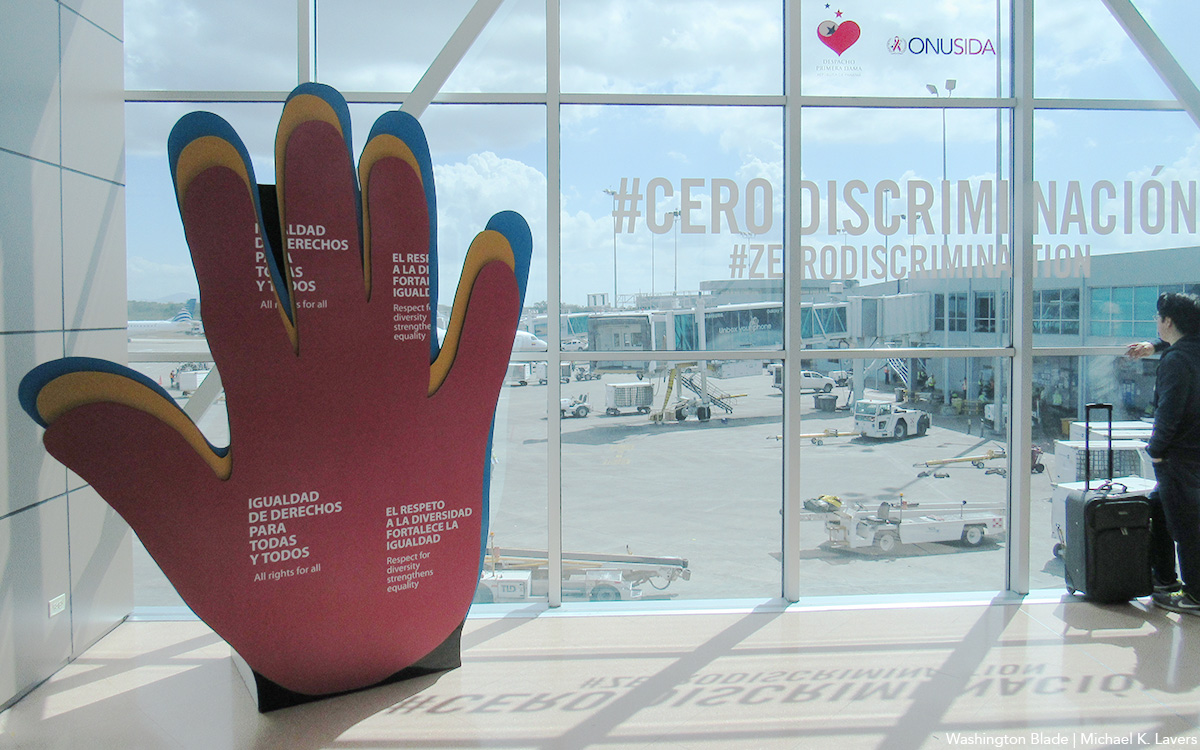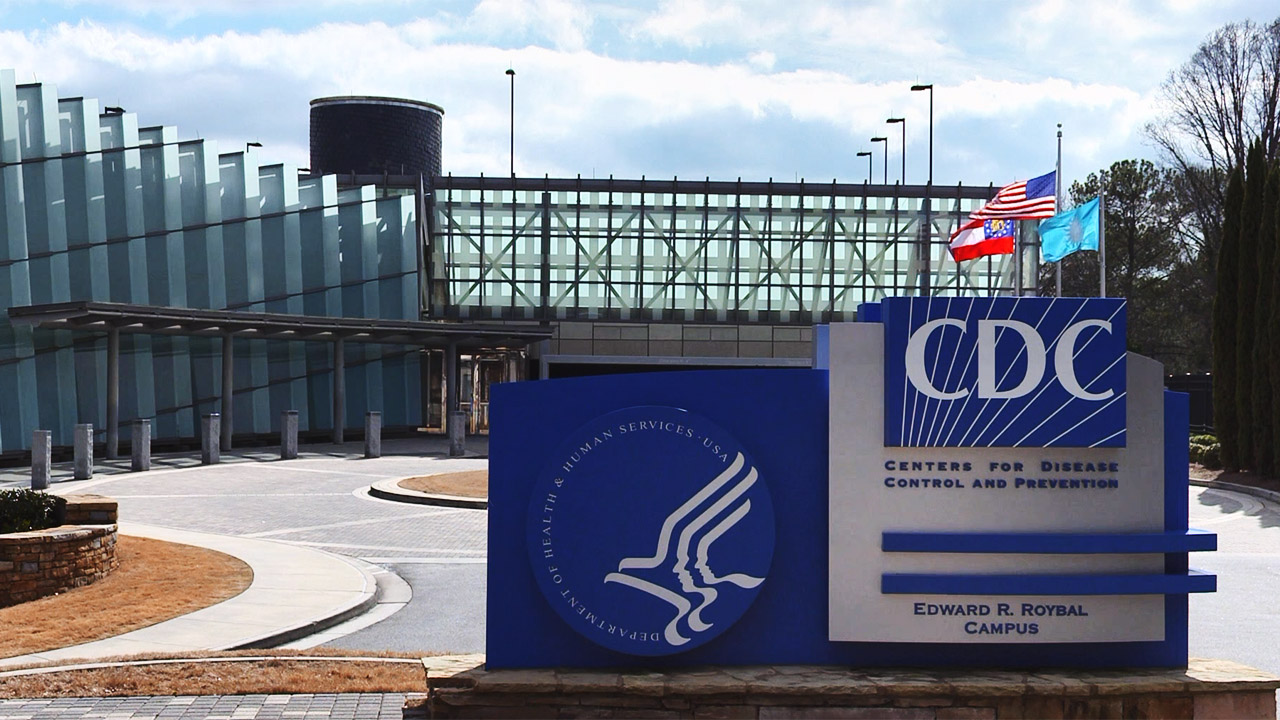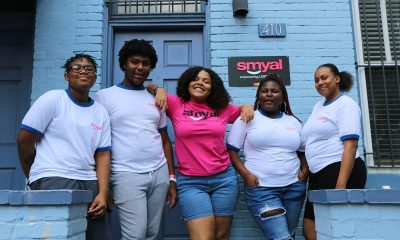Health
Local HIV/AIDS groups criticize cuts in federal grants
Feds cut $1.1 million to Children’s National Medical Center

Local HIV/AIDS service providers have criticized the Health Resources and Service Administration’s decision to cut more than $1 million in grants that fund case management and other programs designed to prevent the spread of the virus.
Children’s National Medical Center had received $1.1 million in annual grants from HRSA under Part D of the Ryan White Comprehensive AIDS Resources Emergency (CARE) Act that specifically supports women, children and families living with HIV. Metro TeenAIDS and the Sexual Minority Youth Assistance League are among the local groups that received HRSA funds through the Northwest Washington hospital.
“From my perspective, that $1.1 million was meant to keep HIV-positive women, children and families connected to medical care,” Adam Tenner, executive director of Metro TeenAIDS, told the Blade. He said that his group had a “very modest contract” with Children’s. “This is critically important to our city and our country as we implement a national HIV/AIDS strategy that encourages HIV positive people to get care.”
SMYAL executive director Andrew Barnett told the Blade his organization received an annual grant of slightly under $60,000 from Children’s that funded a care advocacy program that connected young people newly diagnosed with HIV to the hospital. “Unfortunately with this grant ending, we are no longer able to provide this service directly,” he said. “We continue to work with Children’s Hospital. They’ve been a great partner of ours.”
HRSA spokesperson Elizabeth Senerchia confirmed to the Blade that her agency reopened the Part D grant application process as a way to ensure funding dollars reach “areas with unmet needs” as the National HIV/AIDS Strategy outlines. MedStar Health Research Initiative in Hyattsville will receive $350,000 annually over the next five years to provide Part D services to D.C.
Senerchia acknowledged that this figure is a decrease in funding, but she noted that the city will receive $30,987,607 this year through Part A of the Ryan White CARE Act that funds HIV prevention efforts in urban areas. Washington will also receive $20,138,009 in 2012 through Part B that funds state AIDS Drug Reimbursement Programs and other initiatives to support those with the virus. Senerchia further noted that Whitman-Walker Health, Family Medical and Medical Counseling Service, the Carl Vogel Center, Unity Health Care, Inc., the Howard University Hospital Center for Infectious Disease and Research and MedStar Research Institute received $2,996,116 this year to fund primary care services under Part C.
“HRSA’s Project Officer for D.C’s Part A and Part B grants has reached out to discuss the decreased Part D resources with District officials and we are working with Medstar to ensure continuity of program and client transitions,” said Senerchia.
City officials were quick to note that this decrease in funding will not impact D.C. government’s efforts to combat the city’s HIV/AIDS epidemic. Brendan Williams-Kief, spokesperson for D.C. Councilmember David Catania (I-At Large,) expressed concern over the cut.
“Any reduction of federal grant funding is unsettling, particularly if it impacts such important programs,” he told the Blade. “We will work with Children’s and the Department of Health to determine the impact of the reduction and potential next steps.”
Health
UNAIDS to commemorate Zero Discrimination Day’s 10th anniversary
UN agency urges global action to protect human rights

As the world marks the 10th anniversary of Zero Discrimination Day; UNAIDS is sounding the alarm on the increasing threats to human rights, calling for renewed efforts to protect the rights of all individuals as a fundamental step towards ensuring health for everyone.
Established by UNAIDS a decade ago, Zero Discrimination Day aims to promote equality and fairness regardless of gender, age, sexuality, ethnicity or HIV status. The progress achieved over the past years is now in jeopardy, however, due to rising attacks on the rights of women, LGBTQ people and other marginalized communities.
UNAIDS Executive Director Winnie Byanyima emphasized the critical link between protecting human rights and safeguarding public health.
“The attacks on rights are a threat to freedom and democracy and are harmful to health,” she said in a press release. “Stigma and discrimination obstruct HIV prevention, testing, treatment and care and hold back progress towards ending AIDS by 2030. It is only by protecting everyone’s rights that we can protect everyone’s health.”
Despite challenges, there has been notable progress.
At the onset of the AIDS pandemic more than 40 years ago, two-thirds of countries criminalized consensual same-sex sexual relations. They are now decriminalized in two-thirds of countries. An additional 38 countries around the world have pledged to end HIV-related stigma and discrimination, contributing to positive changes that include 50 million more girls attending school compared to 2015.
To sustain and enhance these advancements; UNAIDS urges global support for women’s rights movements, LGBTQ rights, racial justice, economic justice, climate justice and peace initiatives. By standing with communities advocating for their rights, the U.N. aims to reinforce the collective effort towards a more inclusive and equitable world.
Zero Discrimination Day is observed on March 1.
Events and activities that will take place around the world throughout the month will serve as reminders of the essential lesson and call to action: Protecting everyone’s health is synonymous with protecting everyone’s rights.
“Through upholding rights for all, we will be able to achieve the Sustainable Development Goals and secure a safer, fairer, kinder and happier world — for everyone,” said Byanyima.
Health
New CDC report finds transgender women at higher risk for HIV
More than 1,600 people in seven cities surveyed

The Centers for Disease Control and Prevention issued a new study report this week that revealed that restricted by employment and housing discrimination and lack of access to needed gender-affirming healthcare for transgender women increasing the risk of contracting HIV.
Researchers reviewed data from a 2019-2020 survey, the National HIV Behavioral Surveillance Among Transgender Women, which found that the demographics of HIV/AIDS have been disproportionally high, especially among Black and Latina trans women, who had experienced employment and housing discrimination coupled with lack of access to gender-affirming healthcare.
The Jan. 25 Morbidity and Mortality Weekly Report was based on data studies of more than 1,600 trans women in seven major urban locales. Participants from Atlanta, Los Angeles, New Orleans, New York, Philadelphia, San Francisco and Seattle were chosen by referrals from people and community-based organizations who knew or were part of the local population of trans women.
The study’s researchers noted: “Employment discrimination occurs at the overlapping nexus of poverty, homelessness, incarceration, health insurance, disability, food insecurity and survival sex work. These issues are interconnected.”
The study stated that trans women’s inability to access quality healthcare, including gender-affirming treatment or access to PrEP, and can expose them to potential incarceration as many turn to “survival sex work” and violence, which increases the risk of contracting HIV.
The study’s author’s pointed out: “When economically marginalized transgender women are refused employment, this refusal cyclically contributes to economic hardships. This analysis …demonstrates the importance of transgender women working and living with dignity and without fear of unfair treatment.”
Health
A Whole New Perspective on Well-Being
The Mather’s team recognizes that everyone’s wellness journey is completely unique to their life experiences and influences.

It’s easy to spot the distinctive, elegant silhouette of The Mather, a Life Plan Community for those 62+ opening this spring in Tysons, Virginia. What is not apparent to the naked eye is The Mather’s unique wellness philosophy, which is literally built into the community.
The Mather’s team recognizes that everyone’s wellness journey is completely unique to their life experiences and influences.
Nature is one of the important factors that contribute to well-being. So The Mather is incorporating biophilic design—a design approach to facilitate access to nature or things that replicate natural patterns. This can include interior spaces with sightlines to a garden, choosing natural wood and stone as interior materials, or incorporating fragrant flowers and plants indoors to spark memories and provide tactile opportunities such as gardening.

“Providing biophilic design within interior settings connects residents to the natural world,” says Mary Leary, CEO and President of Mather, the organization behind The Mather. “Research shows that a connection to nature provides positive benefits to mental states and overall well-being. At The Mather, biophilic design is the intersection of buildings and programs with nature in an urban setting.”
“The Mather is attracting a diverse group of older adults,” says Mary. “As a result, we aim to incorporate wellness practices from around the world, including Wyda movement theory of the Celtic Druids, which helps people achieve harmony with nature and contentment through mindfulness.” This holistic regenerative approach is similar to Qi Gong and yoga, while born in a different part of the world. Mather Institute has a special focus on mindfulness to support older adults’ practice of present moment awareness, which can lead to increased overall well-being, compassion, and joy.
A very different example of a wellness offering at The Mather is the Gharieni Welnamis spa wave bed, which uses computer-controlled vibrational therapy and audio frequencies to train the brain to relax. “The bed increases mindfulness, concentration, and creativity—all of which support our mission of creating Ways to Age Well,SM” says Mary.
These and other personalized ways to wellness will ensure that residents of The Mather can choose from seemingly countless ways to focus on their well-being. In other words, the sky’s the limit!





















